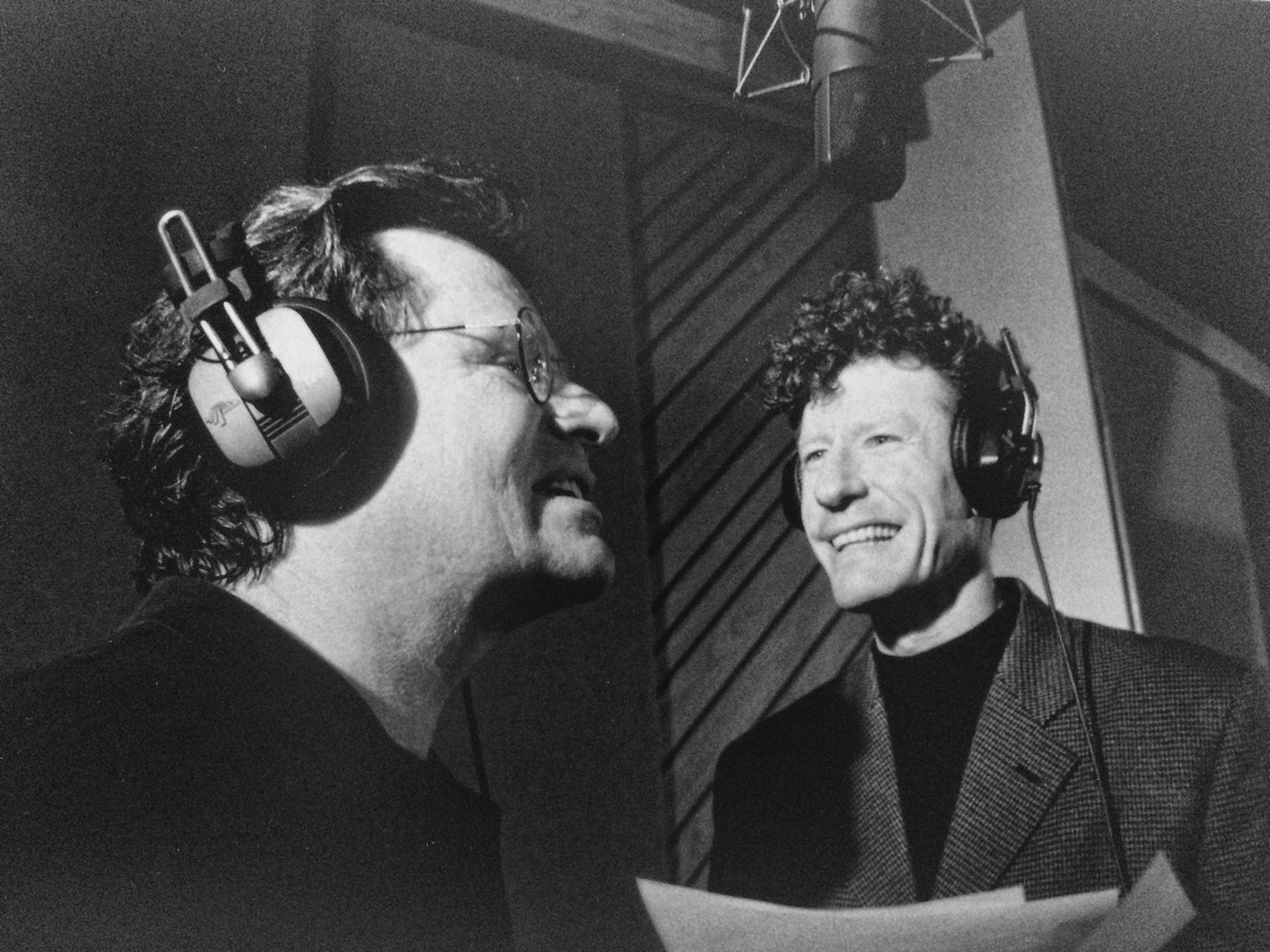For example, in 1962, McClinton and fellow Texan musician Bruce Channel toured England with little-known band The Beatles as their opening act. McClinton says he gave John Lennon some tips on how to play harmonica.
The next year, McClinton says, he locked eyes with President John F. Kennedy minutes before the president was assassinated in downtown Dallas. A few months later, the FBI showed up at McClinton’s house and told him they’d found his name in one of Jack Ruby’s notebooks, likely because McClinton had played in some local clubs owned by Ruby.
McClinton crossed color lines in the late 1950s when his house band, the Straitjackets, backed Jimmy Reed, Muddy Waters and Sonny Boy Williamson II, among others, in desegregated clubs along Fort Worth’s Jacksboro Highway. He went on to record more than 25 studio albums, including 1997’s One of The Fortunate Few, after which the biography is titled, and Cost of Living, which won the Grammy for best contemporary blues album in 2006.
The Fort Worth-bred and now Austin-based musician continues to write and perform original songs, adding new layers to his distinctive amalgam of country, rock, jazz and blues. On Jan. 27, McClinton and his band, Self-Made Men, will release their newest recording, Prick of the Litter. McClinton will perform Feb. 9 at the Granada Theater.
Last week, the Dallas Observer spoke to McClinton and Hendricks about the highly detailed biography, McClinton’s legacy and why he’s binge-watching The Andy Griffith Show.
For both of you, what was the path to writing this book?
Diana Finlay Hendricks: A friend of a friend connected us. Nancy Coplin, Austin’s queen of live music, put Delbert’s wife, Wendy Goldstein, and I together, and Wendy needed somebody to write a new bio [for McClinton’s website]. She said, "Would you do this?" and I was like, "Oh my gosh, yes. Of all the writing I’ve done, this would be a dream job." I love working for people who are my heroes.
The first thing I did was look to see what else had been written, and nobody had written a book. So, once I did the bio, I said, "If you guys like this, we should look into doing a book."
Delbert McClinton: When she said that, it caught me off guard. I’ve been writing bits and pieces for years, just things I want mostly for my children to remember, little side things that are great, some not so great.
Anyway, I thought the last thing in the world I want to read is another book about another survivor of rock ’n’ roll. The only one that I did [read], and I did it because he sent it to me, was Rodney Crowell’s book, Chinaberry Sidewalks, and I thought he did such a wonderful job of telling the story of growing up with his family that it ought to be on Broadway.
So Diana suggested this to me and I thought, "Oh my God." I mean, I still think that. I can’t imagine that anybody would want to sit down and read about me, my life, although I’ve been around and done a lot of things. But when you put it all in context, it was linear, and these were a lot of things that just happened while I was trying to feed myself. So I thought, "What the hell."
Hendricks: Joe Nick Patoski, who has written so many great books about musicians, said, "Don’t write an authorized biography." That way you get to own the story. You get to tell the story the way you want to tell it. And Wendy and Delbert both agreed that that would be a good way to do it.
And I read the book to Delbert, literally. Because he was so busy, he didn’t have time to sit down and read through it just to fact-check some things, so we sat down at his condo in Austin and I read it to him. And at one point, I said, "Let’s take a break and go get something to eat," and he said, "Well I know, but we need to hurry back. I want to know what happens next."
Delbert, did Diana read you anything that surprised you?
Hendricks: I think the 1980s.
McClinton: The ’80s were pretty much a blur. I was learning from experience, which usually means that the test comes before the lesson.
There are a lot of poor, ignorant people who grow up stupid and stay stupid. Somehow or another, I made myself some promises that I’d quit lying to myself, for one thing, and that I’d do better. Took me about 10 or 12 years to make that happen for real.
And let me tell you what: I’ve always loved to watch the news, and the way the world is now, I can’t stand to watch TV. So I am in the fifth season of The Andy Griffith Show. It calms me down. It makes me laugh. So that’s where I am today.
Hendricks: Delbert’s songs don’t fall too far from the tree. They’re the kind of blues that make you happy. It’s in that tradition of, "Things may be bad now, but they’re gonna get a lot better." It’s this hopefulness. And has a bit of what The Andy Griffith Show offers as well. Sometimes you just need to get back to that and say, "Some things are bad; but hey, two more bottles of wine." We certainly are among the fortunate few. These are just a couple of the lines that Delbert has come up with that are classic, and there’s a whole lot we still haven’t used. He has a stack of journals that he entrusted with me that, in the margins and inside the front and back covers, he’s written thoughts and lines that he hasn’t used yet.
McClinton: All that stuff is a work in progress.
Hendricks: Tony Bennett had his first biography written at 74, and his fourth just came out while he’s in his 90s. So I have encouraged Delbert to give me the option to write the next chapter.
Did anything surprise you while writing the book, Diana?
Hendricks: The first and foremost thing that surprised me, as a longtime journalist, is that you expect to hear some untoward things, some criticisms about people. I was looking for, "What was the hardest thing about being on the road? Tell me about when he was really an asshole." And the hardest person on Delbert was Delbert. People that got hired and fired by Delbert multiple times would say, today, "If he called me up, I’d be back there in a minute. Where do you need me?""These were a lot of things that just happened while I was trying to feed myself." – Delbert McClinton
tweet this
And I think that the [Sandy Beaches Cruise] is indicative of that because there are people on that cruise that have played with Delbert for nearly 60 years. It's exciting to see this family tree that has come from the roots of that, and that was probably the most interesting thing I’ve learned — that all of these people are still friends. No matter what we do in life, you’re hard-pressed to stay in touch with people in a traditional job that long.
One of my favorite quotes from the book is from Don Imus, who also wrote the foreword. "There are two kinds of people in the world," he said, "those who love Delbert McClinton and those who’ve never heard of him."
Delbert, you’ve been playing and performing music for more than six decades. What keeps you going?
McClinton: I don’t know. It’s more something I can’t help doing, rather than something I seek to do. That’s the reason I’m here. As long as I can remember hearing music, I couldn’t get enough of it.
I was 10 years old when Hank Williams had his first big hit, so I’ve heard everything from there. Since I was crawling around as a baby, I heard war music, those fantastic big bands that recorded music all at the same time and didn’t put autotune on any of it, and it’s so full of life. Go back and listen to that stuff. Go back and listen to a ’60s hit called "The Name Game." Listen to the rhythm of that song. That’s what’s important to me.
One of the things that struck me about the book was the magic of chance, like you and John Lennon being the same age, 22, when your paths collided, or you and Bruce Channel being born 24 days apart and living 24 miles apart before you met. Do you believe in luck or coincidence?
McClinton: That’s just how it happened. That’s just me and my life.
Hendricks: I think there were a lot of coincidences. These kinds of things just don’t happen to regular people, Delbert.
McClinton: It is a unique sequence of events.
Hendricks: When we were almost finished with the book, he said, "Wait: Did I ever tell you that we were living at Priscilla Davis’ house right before that murder happened?" And I said, "I think that might be something that I want to include." Because you know, that trial was huge in Dallas.
McClinton: That was the biggest murder trial in Texas history.
Hendricks: Yeah. And those things come to him, like "oh, by the way … ." And as somebody who likes putting all the dots together, that makes it a fun story. He’s just so humble that he doesn’t like to dwell too much on how things have unfolded in his life.
McClinton: I’m not sure I’m that humble [laughs].
Hendricks: Being relevant and staying relevant is an art. Recently, Rolling Stone called Delbert “the godfather of Americana music.” Now, he hates labels. He’s spent his career avoiding labels, which has challenged radio promoters and record store owners, not quite knowing where he fits. But when you go back and look at it, Americana music, and even just that wording, Delbert has been around to grow up with the American dream. And maybe the book will take some of those readers a step further than a musical career. They say that a little luck and a lot of hard work will get you anywhere, and he’s proven that.
He spent a great deal of his career with a mattress in the back of a pickup under a camper shell, sleeping on that mattress that he was born on. There’s something to be said about the hunger to do that. There’s a passion for it. It’s more than a job.
McClinton: It’s never been a job. It’s always an adventure. It’s always ongoing.
This interview has been edited and condensed.














